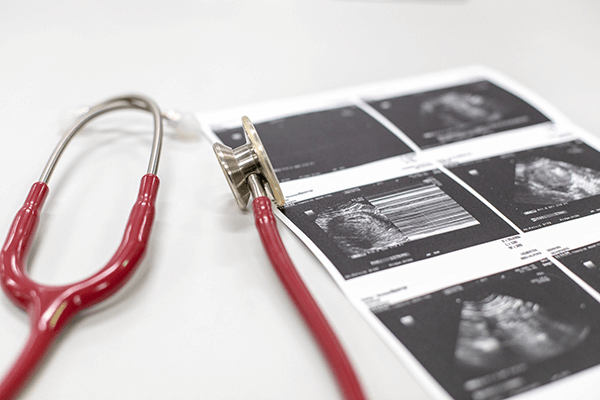Breaking the Silence: The Importance of Miscarriage Awareness

Introduction
Miscarriage is a deeply personal experience that impacts millions of families worldwide, yet it remains shrouded in silence and stigma. By breaking the silence and fostering awareness, we can normalize conversations, support those who have experienced loss, and create a more compassionate society. This article highlights the importance of miscarriage awareness and explores ways to promote understanding and healing.
What Is a Miscarriage?
A miscarriage, or pregnancy loss, occurs when a pregnancy ends spontaneously before the 20th week of gestation.
Statistics
- Miscarriage affects 10-20% of known pregnancies, though the actual number may be higher due to early, unrecognized losses.
- Despite its prevalence, it remains a largely unspoken topic, contributing to feelings of isolation for many parents.
Emotional and Physical Impact
- Emotional: Grief, sadness, guilt, and fear about future pregnancies.
- Physical: Symptoms such as bleeding, cramping, and hormonal changes.
For tips on managing pregnancy-related symptoms, check out this First-Trimester Survival Guide.
The Stigma Surrounding Miscarriage
Historical Perspectives
- In the past, pregnancy loss was rarely discussed, leading to a lack of awareness and understanding.
Cultural Taboos
- Many cultures consider miscarriage a private or even shameful matter, discouraging open dialogue.
Social Silence
- Parents often feel pressure to grieve in silence, fearing judgment or misunderstanding from others.
Why Miscarriage Awareness Is Crucial
1. Normalizing Conversations
- Open discussions about miscarriage reduce stigma and foster empathy.
2. Reducing Shame
- Awareness helps parents understand that most miscarriages occur due to natural causes, not personal fault.
3. Providing Support
- Encourages communities to offer meaningful support to those affected by pregnancy loss.
The Emotional Impact of Miscarriage
Grief and Anxiety
- The loss of a pregnancy can feel like the loss of a future, leading to profound grief and anxiety about trying again.
Partner and Family Dynamics
- Partners may grieve differently, causing strain on relationships. Open communication is key to mutual support.
Physical Recovery After a Miscarriage
Symptoms and Healing Timeline
- Bleeding and Cramping: Typically lasts 1-2 weeks.
- Emotional Recovery: Takes longer and varies for each individual.
Importance of Medical Care
- Seek medical attention to ensure complete recovery and rule out complications.
For more information on appetite changes and other pregnancy-related symptoms, explore this guide on food aversions.
How to Support Someone Who Has Experienced a Miscarriage
What to Say
- “I’m here for you.”
- “I’m so sorry for your loss.”
- “How can I support you right now?”
What to Avoid
- “At least you can try again.”
- “It wasn’t meant to be.”
- “Everything happens for a reason.”
Creating Safe Spaces for Discussion
Support Groups
- Joining a group of individuals who’ve experienced similar losses can provide comfort and validation.
Online Communities
- Virtual platforms allow parents to share their stories anonymously, fostering connection and understanding.
The Role of Healthcare Providers in Awareness
1. Education
- Providers can educate patients about the causes and prevalence of miscarriage to reduce feelings of blame.
2. Empathy
- Compassionate care helps parents feel heard and supported.
3. Better Resources
- Offering access to counseling, support groups, and informative materials.
Awareness Campaigns and Advocacy Efforts
Key Initiatives
- International Pregnancy and Infant Loss Awareness Day (October 15th) promotes global awareness.
Breaking Barriers
- Campaigns challenge cultural taboos and encourage open dialogue.
Promoting Inclusivity
- Ensuring all parents, regardless of gender identity or relationship status, feel supported.
How to Talk to Children About Miscarriage
- Use Age-Appropriate Language:
- For younger children: “The baby was too small to grow.”
- For older children: “Sometimes pregnancies don’t work out, and it’s no one’s fault.”
- Encourage Questions:
- Let them express their feelings and concerns openly.
Navigating Pregnancy After a Miscarriage
Facing Fears
- It’s normal to feel anxious about future pregnancies.
Building Resilience
- Counseling and support groups can help parents regain confidence.
Seeking Support
- Regular check-ups and open communication with healthcare providers are crucial.
FAQs About Miscarriage Awareness
1. Why is miscarriage still a taboo topic?
Cultural and societal norms often discourage open discussions about loss, but awareness efforts are changing this.
2. How can I help someone who has had a miscarriage?
Offer empathy, listen without judgment, and avoid minimizing their grief.
3. Is it normal to feel guilty after a miscarriage?
Yes, but it’s important to remember that most miscarriages are caused by natural factors beyond your control.
4. Can miscarriage awareness really make a difference?
Yes, it reduces stigma, provides support, and helps parents feel less alone in their experiences.
Conclusion
Breaking the silence around miscarriage is essential for fostering understanding, reducing stigma, and supporting those affected by pregnancy loss. By raising awareness and encouraging open conversations, we can create a world where parents feel empowered to share their stories, seek help, and find hope in the face of loss.






